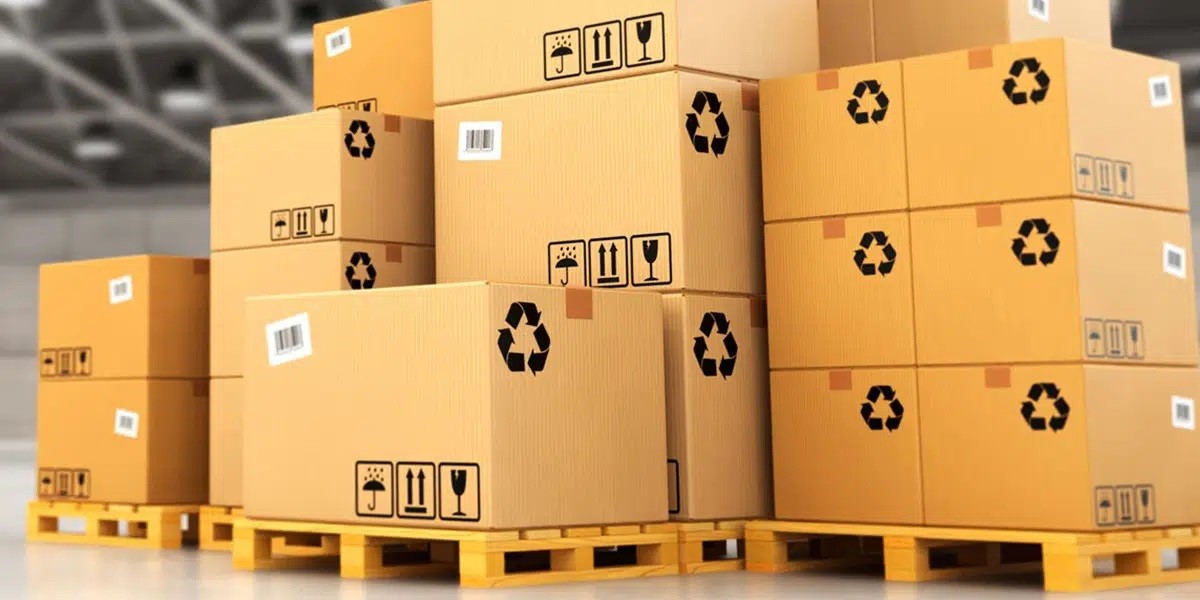Every product goes through a long cycle before it reaches the hands of a customer. From the manufacturer to the distributor to the supplier to customer, there are a lot of steps and handovers involved. It is necessary to protect the products from breaking or getting damaged during these transactions so that the customer can receive an intact, working, and usable product. One of the best ways of ensuring the safety of a product is industrial packaging.
Industrial packaging is used to keep the products safe and allow them to be stored in warehouses or shipped through containers. They are the first line of defence for a product and are a vital part of the product journey. Industrial packaging is known for its strength and durability and is often used in several industries to protect the products from any vibrations, knocks, moisture or other hazards.
What Is The Difference Between Industrial Packaging And Consumer Packaging ?
One of the biggest differences between consumer and industrial packaging is their scale. Consumer packaging is often limited to singular products that the customers receive. While safety is a concern, this packaging focuses more on the appearance and branding aspects of the product as this is what differentiates their product from the competitors.
Industrial packaging on the other hand focuses more on safety and is done on a large scale. Here, a single product is packed in large quantities making them suitable to be transported to distant locations or kept on the shelves for months at a time.
An example would be children’s toys packed in those see-through boxes. Here the see-through box that entices a child to buy the toy is the consumer packaging. While it is great for showing off the product, it isn’t that durable for shipping. Hundreds of these toys are packed together in industrial packaging so that they can be delivered from the manufacturer to the store.
Why Is Industrial Packaging Important ?
Industrial packaging is not like your average packaging. There are different because they are used for different purposes than normal packaging. It is important as it protects the products kept inside from any kind of damage during transit. They make it possible for products manufactured in Europe to be sold across the Atlantic in the US and around the world. This is extremely important for products like luxurious cars, electronic items, medicines, and other fragile items that are susceptible to breaking and need to be protected.
Industrial packaging is necessary for the safety of the people handling the products as well. Hazardous materials like acids, oils, radioactive elements and such can’t be transported through traditional packaging methods. They require customized and specially build packaging solutions that make sure that it doesn’t spill, leak, or destroy the container.
Different Industrial Packaging Materials
Industrial packaging is done to ensure the safety, shipping, and storage of products. For that reason, companies can use several different materials or a combination of materials depending on the product at hand. Some of the most common materials used for industrial packaging are:
- Corrugated cardboard boxes are the most common packaging material. Along with similar materials like paperboards, fiberboards, rigid boxes, and more.
- Plastic in the form of shrink wrap, vacuum bags, polyethylene bags, etc.
- Steel can be used to transport oils, hazardous chemicals, or even shipping containers.
- Wood is used for packing products in wooden crates, plywood boxes, wooden pallets and more.
- Aluminium for transporting beverages, sporting goods, kitchen equipment, and more.
It is important to note that these materials are not fixed and companies can use a mixture of materials like steel and wood to make the best packaging solution for a product. The packaging should meet the dimensions and safety requirements for the product and the mode of shipment.
How To Choose A Packaging Material ?
Several factors determine what kind of packaging material you should use to protect and ship the product. The weight of the product, its fragility, quantity, how it will be shipped, whether it is a liquid or solid, is it hazardous or corrosive, and more.
If you are unsure of what kind of industrial packaging material would fit you the best, you can consult with a packaging company like Pronk. They follow international and legal standards for packaging a product to make sure that it remains safe while in transit or while sitting in a warehouse.
